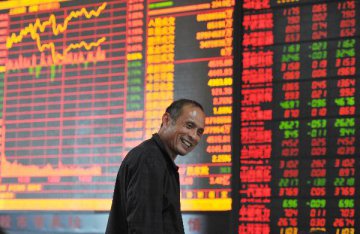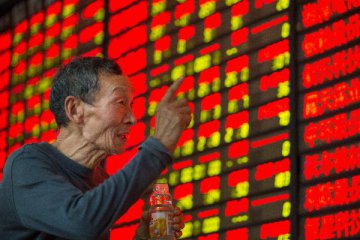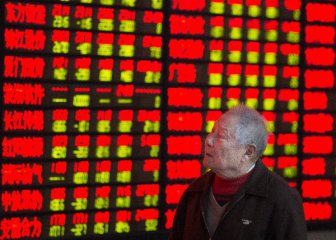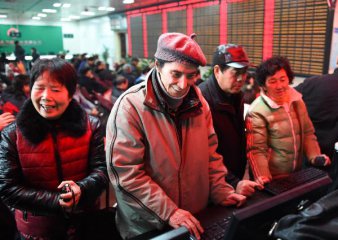
All roads are currently headed north when it comes to Chinese stocks. Overseas investors have been piling into mainland shares in recent days using the Stock Connect trading link with Hong Kong, taking trading volumes via the system to their highest level since it launched just over four years ago. Further growth, though, won’t be pain-free.
Despite skepticism at its outset, Stock Connect has become a smooth and well-liked method for investors to access the mainland’s shares. This year’s rally in Chinese stocks, along with index provider MSCI ’s plan to add more A-shares into its Emerging Markets Index, has fueled the surge in so-called northbound flows—overseas buying of mainland shares.
Stock Connect’s coming of age is good news for Chinese regulators eager to see more foreign capital enter domestic markets. It’s a boon, too, for Hong Kong Exchanges & Clearing Ltd., the owner of Hong Kong’s stock exchange, which skims trading fees from activity via the link.
Yet the trading link’s growing popularity could soon pose some awkward questions. Foreign ownership of mainland-listed companies via Stock Connect and other mechanisms is effectively limited to 28% of their market capital. This week, industrial-machinery company Han’s Laser Technology Industry Group Co., a favorite among overseas investors, became ineligible for purchase through Stock Connect as foreign ownership hit that buffer.
Other stocks popular with overseas buyers—often the country’s most innovative and well-governed companies—could soon hit the same limit. Unless Beijing gets more comfortable with non-Chinese ownership of local companies, foreign investors risk missing out on further gains in China’s best investment opportunities.
The ease of purchasing the stocks through Stock Connect belies some important legal questions surrounding them. Technically, shares bought by foreign investors are beneficially owned on their behalf by a HKEX subsidiary. Where that leaves investors in China’s legal system when they want to recover assets from failing companies remains to be seen.
More important, Stock Connect has only come to life at a point when flows have been largely one-way. In all, investors have bought a net 578 billion yuan ($86.2 billion) worth of Chinese stocks through the link in less than two years. A time may well come when investors want to sell some or all of the holdings they have recently built up at the same time, whether because of an economic slowdown, a market slump or some other China-related panic.
How China’s financial liberalization fares in that sort of nasty scenario will be the real test of Stock Connect—and Beijing’s real attitude to overseas investors.
Source: The Wall Street Journal
























Latest comments